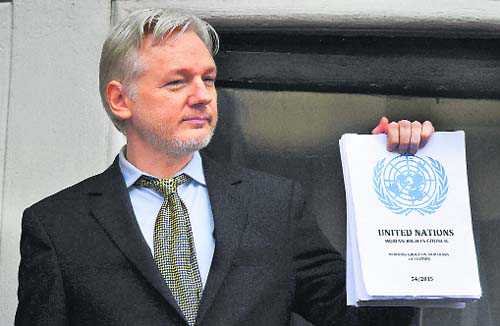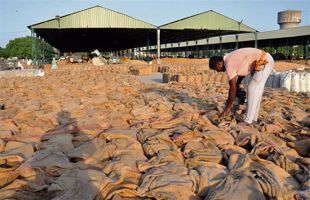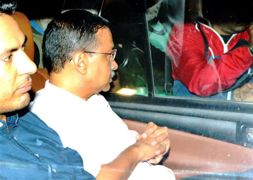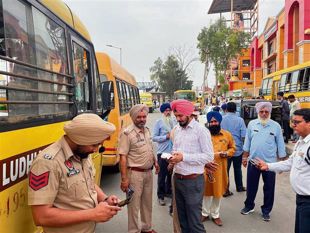
WikiLeaks founder Julian Assange holds a copy of the UN ruling as he makes a speech from the balcony of the Ecuadorian Embassy, in Central London, a few days back. Reuters
Bharat Desai & Balraj K Sidhu
In a historic ruling, the UN Working Group (UNWG) on Arbitrary Detention has emphatically opined that the forcible incarceration of WikiLeaks founder, Julian Assange, at the Ecuadorian Embassy in London amounts to “arbitrary detention”. This has come as a shot in the arm for the besieged Australian, after a 43-month-long confinement in the diplomatic mission. Assange was forced to take shelter in the Ecuador Embassy to avoid arrest after his request not to be extradited to Sweden was turned down by the British courts.
The simmering standoff has put to test resilience of international law in such delicate situations. It is based upon the bedrock of in-built complications as regards claims of violation of human rights of a person of Australian nationality living in London, accused of committing a crime on Swedish soil, faced with extradition proceedings that turned down his pleas of unfair treatment and vindictiveness if sent to Sweden, which might, in turn, hand him over to the United States for the damning 2010 WikiLeaks's publication of secret diplomatic cables.
The dramatic turnaround came in the aftermath of the Assange legal team's failure to stop his extradition to Sweden. It led to his turning up at the Ecuador mission, to seek sanctuary in the diplomatic mission. Even as international law does not provide for any “right of legation” still, once a mission is located on its soil, the receiving state is under obligation to protect it at all cost.
The pertinent law on the subject is the Vienna Convention on Diplomatic Relations (1961). It provides that the “premises of the mission shall be inviolable”. In the now famous Case Concerning US Diplomatic and Consular Staff in Tehran (1980), the International Court of Justice (ICJ) emphasised that: “The obligation to respect the rules of diplomatic immunity is an absolute obligation which must be obeyed in all circumstances”.
There is no provision on diplomatic asylum in the Vienna Convention. Assange has faced the threat issued by the UK Foreign Minister on storming the Ecuador Mission to arrest Assange. That ill-advised assertion brought an ugly reminder of previous gross violations of diplomatic mission's immunity such as the US forces' storming of the Vatican Nunciature in Panama City to pull out the Panamanian President Manuel Noriega as well as the Taliban's storming of the UN mission in Kabul to pull out the Afghan President Najibuallah. These gross violations, however, went unchallenged. The current bone of contention remains the refusal of the British government to provide Assange a “safe passage”. In fact, it seemed ironical that the British government that upheld the sanctity of the Libyan Embassy in London, in spite of shooting of a police woman on duty outside the mission and allowed all the occupants a safe passage, is now adamant about not allowing the same right to Assange. This over-zealous assertion of sovereignty has cost the British tax payer a staggering sum of over £12.6 million. In the aftermath of ruling of the UN’s Working Group, Assange's legal team has claimed that, as a “political refugee,” he must be allowed to walk free without any threat of arrest. However, the Scotland Yard has asserted its right to deploy “a number of overt and covert tactics to arrest him’. Hence there is no sign of an end to the crisis.
Under the authority of the UN Office of the High Commissioner of Human Rights, the WGAD was established in 1991 to investigate and adjudicate whether states are in compliance with their international human rights’ obligations. It receives submissions from individual complainant and respondents (the States), and decides whether the case amounts to arbitrary (unlawful) detention. Even the European Court of Human Rights draws on opinions of the WGAD in cases concerning deprivation of liberty. The decision of the WGAD is not legally binding; still it carries considerable moral authority. It has passed similar indictments concerning illegality of detentions of Aung Saan Suu Kyi (2007), M.Morsi (2014), M.Nasheed (2015) and Jason Rezaian (2015). In making determination of “arbitrary detention”, the WGAD tests violations of key human rights instruments such as Universal Declaration of Human Rights (UDHR), International Covenant on Civil and Political Rights (ICCPR) and European Convention on Human Rights (ECHR). In previous cases, the WGAD had agreed “a deprivation of liberty exists where someone is forced to choose between either confinement, or forfeiting a fundamental right — such as asylum — and thereby facing a well-founded risk of persecution”.
It appears, however, that notwithstanding strong censure of WGAD in the Assange vs UK and Sweden case as well as in the likely scenario of the UK still not providing a safe passage, Julian Assange would remain holed up in the Ecuadorian mission for a long time to come. In view of this, a negotiated settlement between Ecuador and the UK along with Sweden providing guarantee on non-extradition to a third country (the USA) could provide a face-saving device to both the sides. Alternatively, both Ecuador and the UK could on the basis of a special agreement refer the case to the International Court of Justice (ICJ). In such as it appears that the principal judicial organ of the UN has the capacity, legal acumen and courage (as in the 1986 Nicaragua case) to deliver a robust solution based on international law.
As events unfold, the UK needs to rise to the occasion so as to respect WGAD's sound opinion as well as provide a safe passage to Assange. Moreover, the Swedish authorities need to assure non-refoulement due to the fear of persecution in the USA. If the WGAD's clear “disposition” that the “deprivation of liberty of Mr. Assange is arbitrary” under the UDHR as well as ICCPR is not heeded, it will hugely affect the credibility of both the UK and Swedish governments, that often champion causes of those who fear political persecution around the world. It remains to be seen if Assange will take the risk to leave the mission and invite arrest, as threatened by the Scotland Yard. One only hopes that the UK will take the WGAD verdict seriously, respect sanctity of personal liberty and facilitate Assange’s freedom from “arbitrary” detention, while upholding inviolability of the Ecuadorian mission. To walk the talk of International Rule of Law is an acid test.
Bharat Desai is Professor of International Law and Jawaharlal Nehru Chair at JNU & Chairman of Centre for Advanced Study on Courts & Tribunals (CASCT), Amritsar. Balraj K. Sidhu is Executive Director, CASCT.



























